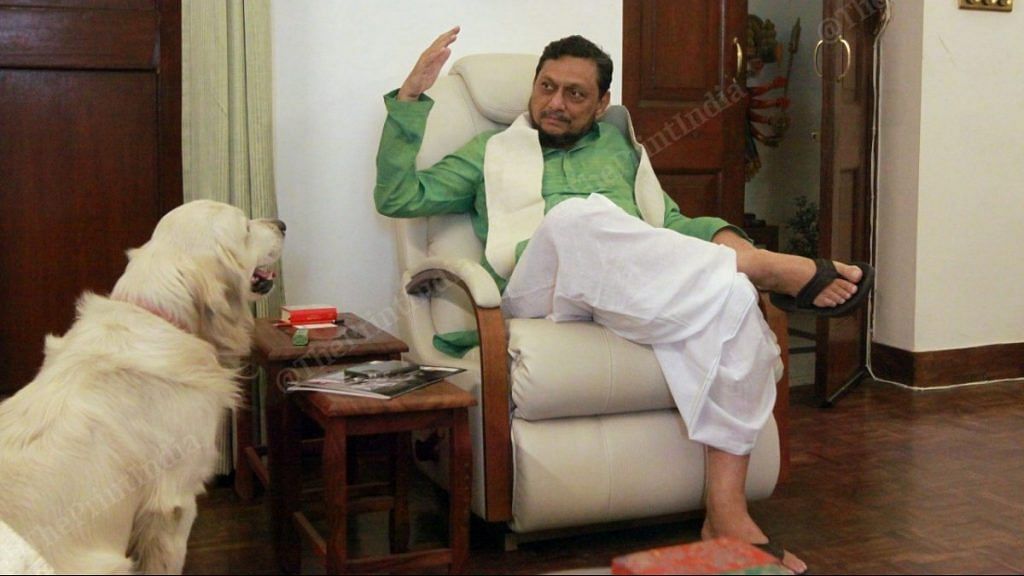As India’s 47th Chief justice, Sharad Arvind Bobde must have two priorities – upholding the majesty of law, both the judicial and the administrative side, and ensuring no government can take the judiciary, including the Supreme Court, lightly.
That is my wish-list for the soft-spoken, photography and dog-loving judge, who took oath as CJI Monday and will be in office till April 2021.
The work of justice is in many ways like good journalism: being anti-establishment is the one quality that sets it apart.
My fellow journalists are questioned daily about their inability to speak truth to power. Similarly, the judiciary too is facing hard questions on its recent decisions – be it on Delhi air pollution or the Ayodhya title dispute.
The judiciary has the added responsibility of succeeding where other democratic institutions have failed.
Also read: ‘Notorious student’, champion sportsperson, dog lover — SA Bobde takes oath as new CJI
Judicial changes
India still remembers that day in 2018 when four senior judges of the Supreme Court, including CJI Bobde’s predecessor Justice Ranjan Gogoi, held an unprecedented press conference to voice their angst against then CJI Justice Dipak Misra’s handling of affairs at the court, including constitution of benches to hear sensitive cases.
Unfortunately, as Chief Justice, Ranjan Gogoi did exactly the same, if not much more, as Misra – the man he and the other judges chose to expose.
Judges are remembered for the quality of their judgments, while chief justices are remembered for both their judgments and the manner in which they lead the country’s judicial structure. Through their judicial conduct, the CJI and judges of the Supreme Court are expected to send a strong message to subordinate courts to not be afraid of the government – at the Centre or the states.
Else, as former Justice Jasti Chelameswar said at that January press conference: “Democracy will not survive in this country.”
Now, before someone misunderstands me, no one expects the judges to go around – Don Quixote-like tilting at windmills – being over-aggressive, often to the detriment of the nation and its citizens, trying to find fault with the government. All that is expected is that the actions of the government, especially the one at the Centre, be scrutinised with at least the same vigour as the cases of ordinary citizens.
When courts become too aggressive and start looking for headlines, they fail the principles of justice as well as the law. That possibly is one reason why, despite repeated court interventions, the Central Bureau of Investigation (CBI) continues to be a caged parrot, and BCCI and Indian cricket continues to be controlled by the same set of people, or their kin.
In recent years, several judgments of the Supreme Court have attracted criticism for the absence of adequate rationale and being pro-government.
The new CJI, it is clear from his interviews, is thankfully a votary of free speech, and supports healthy criticism of the institution. But CJI Bobde would be serving the institution better if he also takes the necessary correctives in issues raised by those who respect the institution and whose criticism is not a politically-motivated rant.
To begin with, Bobde could prioritise hearing of cases like the challenge to the opaque electoral bonds.
Also read: Aadhaar, air pollution, Ayodhya — next CJI SA Bobde has been part of landmark cases
Administrative changes
The vacancy of judges in high courts keeps increasing. While much of it is due to the fact that high court collegiums aren’t recommending names in a timely manner, the Narendra Modi government is not devoid of fault.
The Modi government has already earned the dubious record of stonewalling a high number of collegium recommendations, many of them on very flimsy grounds. Whenever the candidate was not to its liking, the Centre has also taken on the Supreme Court over appointments of chief justices of high courts.
Unfortunately, the Supreme Court chose not to push back in many cases, often changing its recommendation. The collegium could have at least told us why they agreed with the Modi government’s objections.
When the senior-most judges of the Supreme Court throw in the towel without even a semblance of a fight, it has a ripple effect on the entire judiciary.
Also read: No NJAC but Modi govt still manages to have a say on judges’ appointments, transfers
While the government isn’t always wrong, it can often play the bully. The Supreme Court under CJI Bobde must stand up to the government’s bullying.
CJI Bobde must also push the high court collegiums to send recommendations more often and in larger numbers.
The business-as-usual attitude is taking a huge toll on the justice delivery system. Unless CJI Bobde acts like the statesman and leader that the Indian judiciary needs at this critical juncture, history may not judge him differently.
Views are personal.
